ECS Z87H3-A2X Extreme Motherboard Review
Overclocking
Overclocking greatly varies due to what hardware is being used and who is doing the overclocking. Always remember that no two pieces of hardware will perform the same, so our results will differ from what you might be able to get.
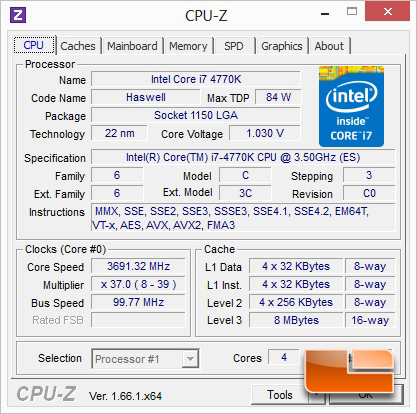
The Intel Core i7 4770K runs at a non-turbo speed of 3.5GHz and turbo will ramp the processor up to as high as 3.9GHz under a lightly threaded load, or under a full load 3.7GHz as we can see above. Since we are using a K series processor which has an unlocked multiplier we will be able to increase the default x35 multiplier to achieve our overclock today. This is the easiest way to overclock K series processors and should provide us with some great speeds.
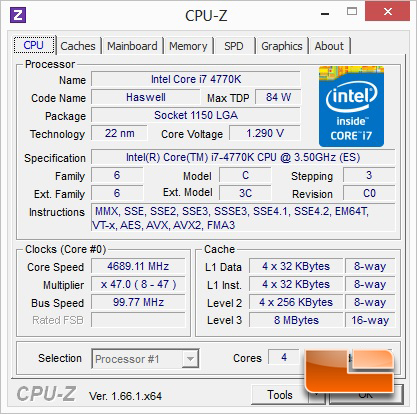
We went a little different route with our overclocking today. Instead of working in the ECS BIOS, we decided to work within Windows and use the Intel Extreme Tuning Utility. After a little bit of time we were easily at 4.7GHz. We increased the turbo multipliers to x47 and the CPU vCore to 1.29 and everything was rock solid
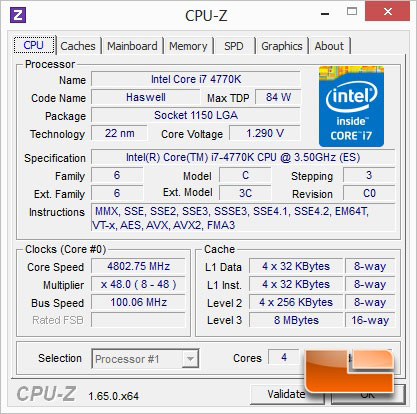
This isn’t our first rodeo with our Intel Core i7 4770K Haswell processor and we know it’s more than capable of hitting 4.8GHz without much on an issue. We were able to get into the operating system without an issue, but no matter what we tried we couldn’t find any system stability. Anytime we put a load on the 4770K the system would crash on us.
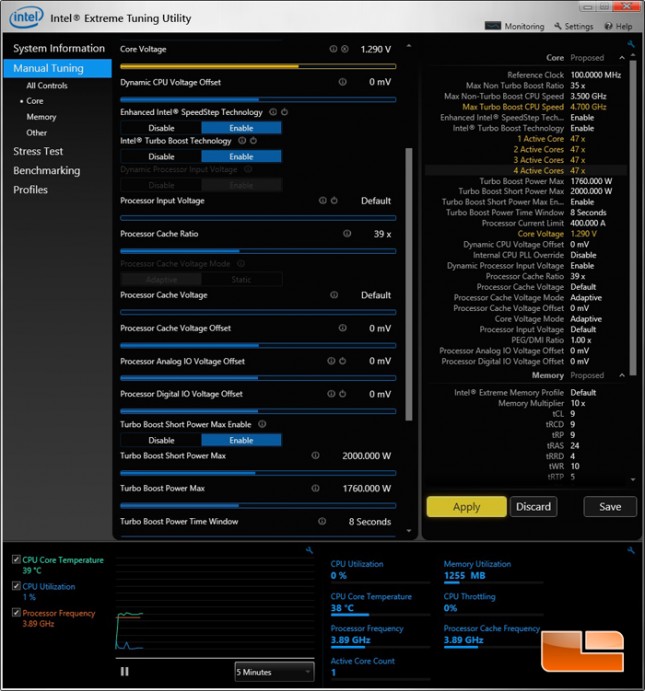
We didn’t have to change many settings within the Intel XTU software to hit our 4.7GHz overclock. You can see the changes in yellow above, which include the vCore to 1.29, and the CPU Turbo multipliers to x47. Once we hit apply we were rocking out at 4.7GHz without the need to reboot.
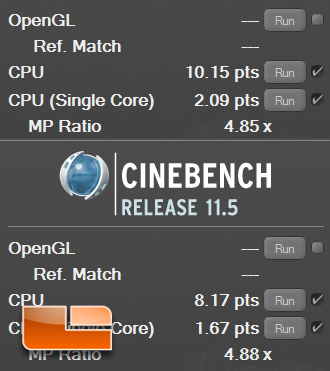
Increasing the Intel Core i7 4770K to 4.7GHz we were able to bring our Cinebench score up from 8.17 points to 10.15 points a gain of 24%! Overall certainly not a bad day at the office!

Comments are closed.